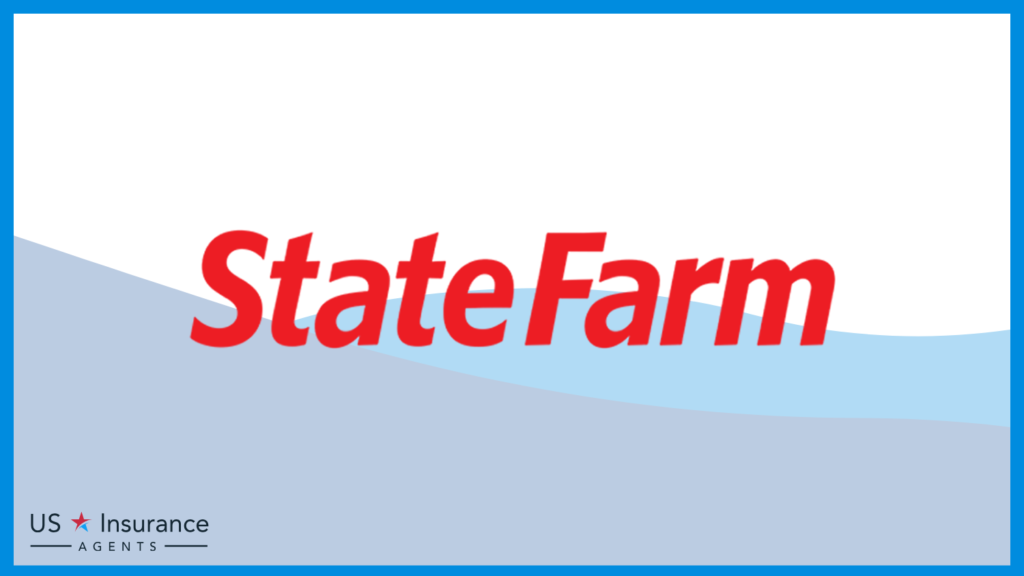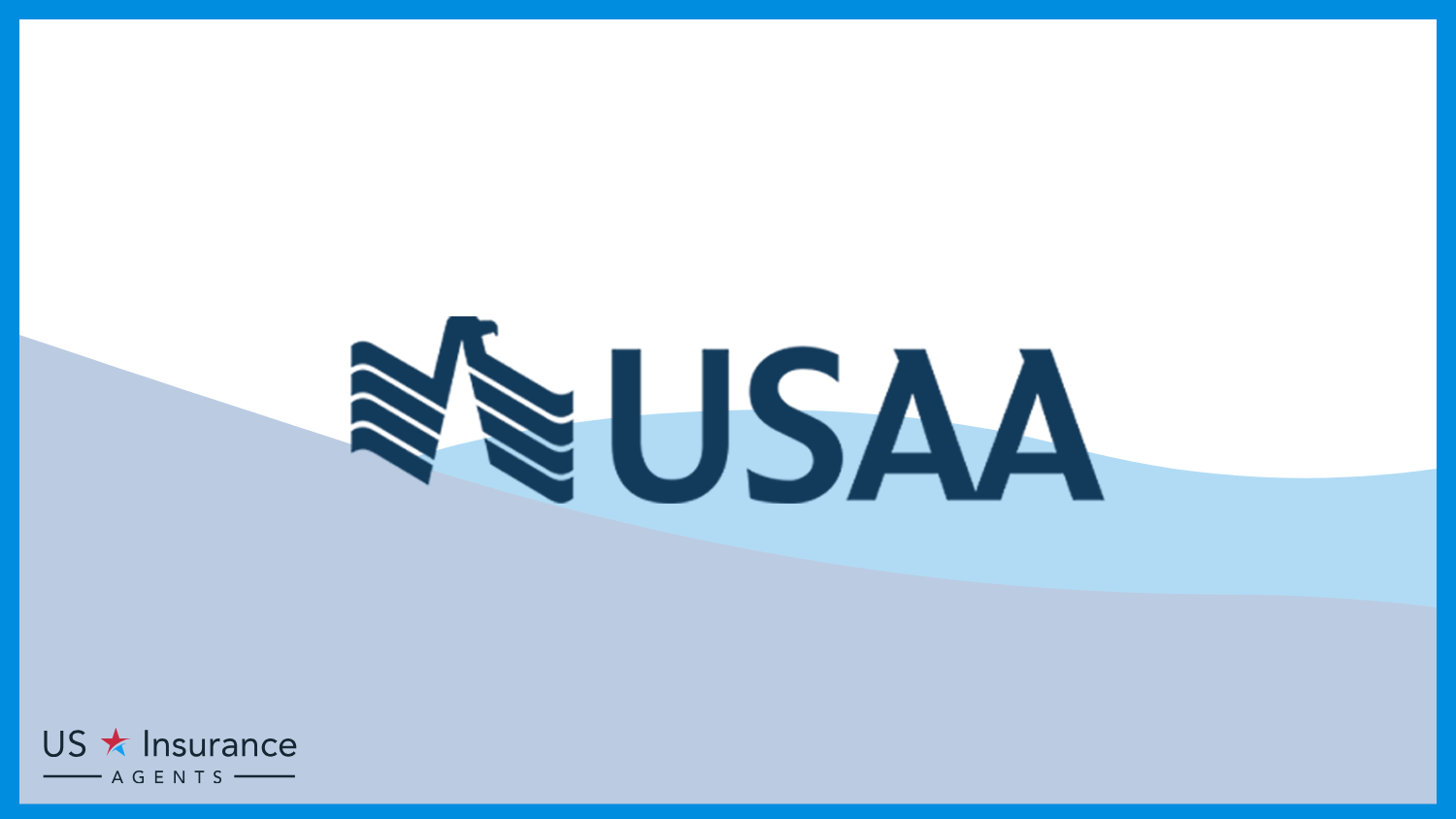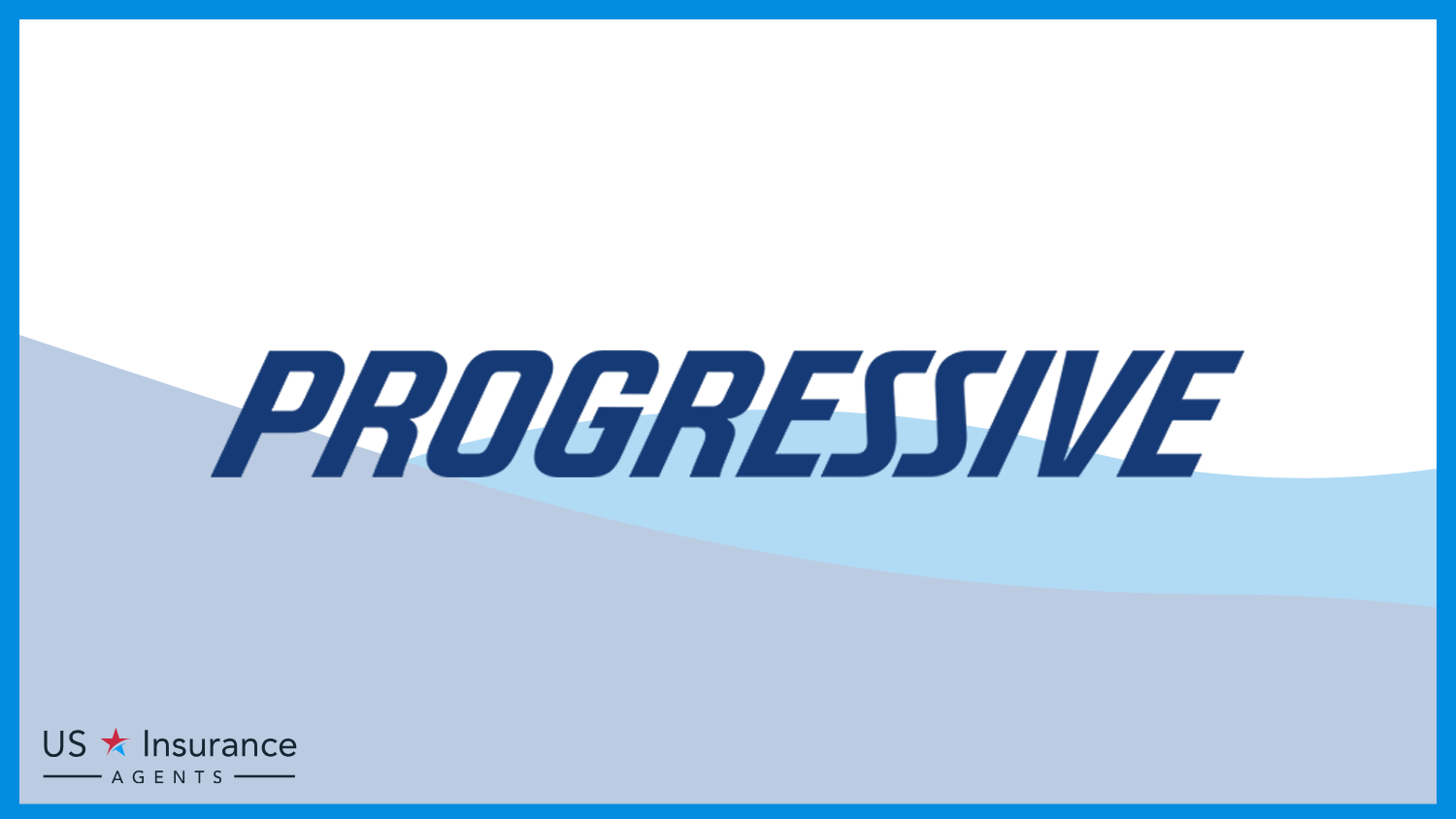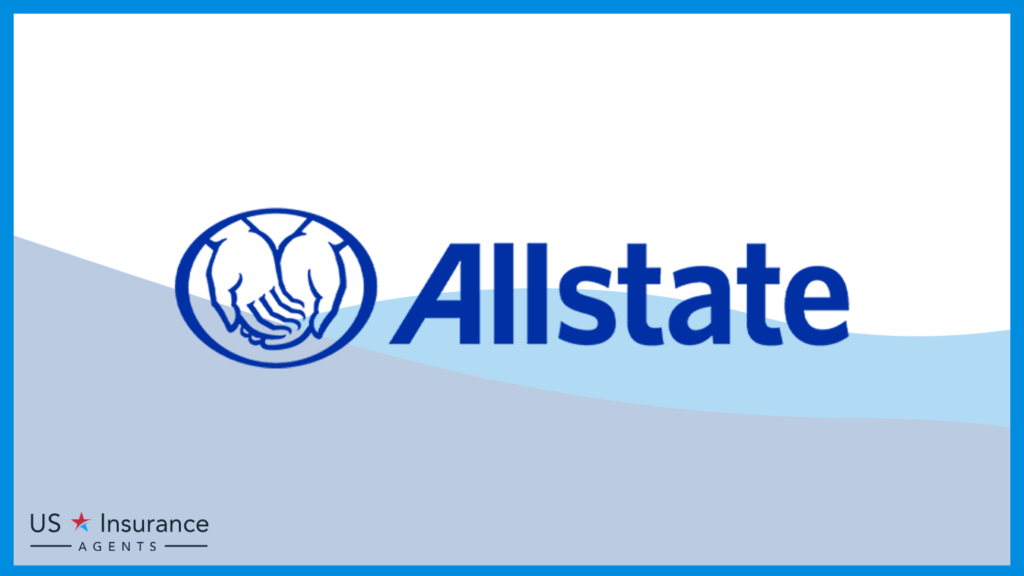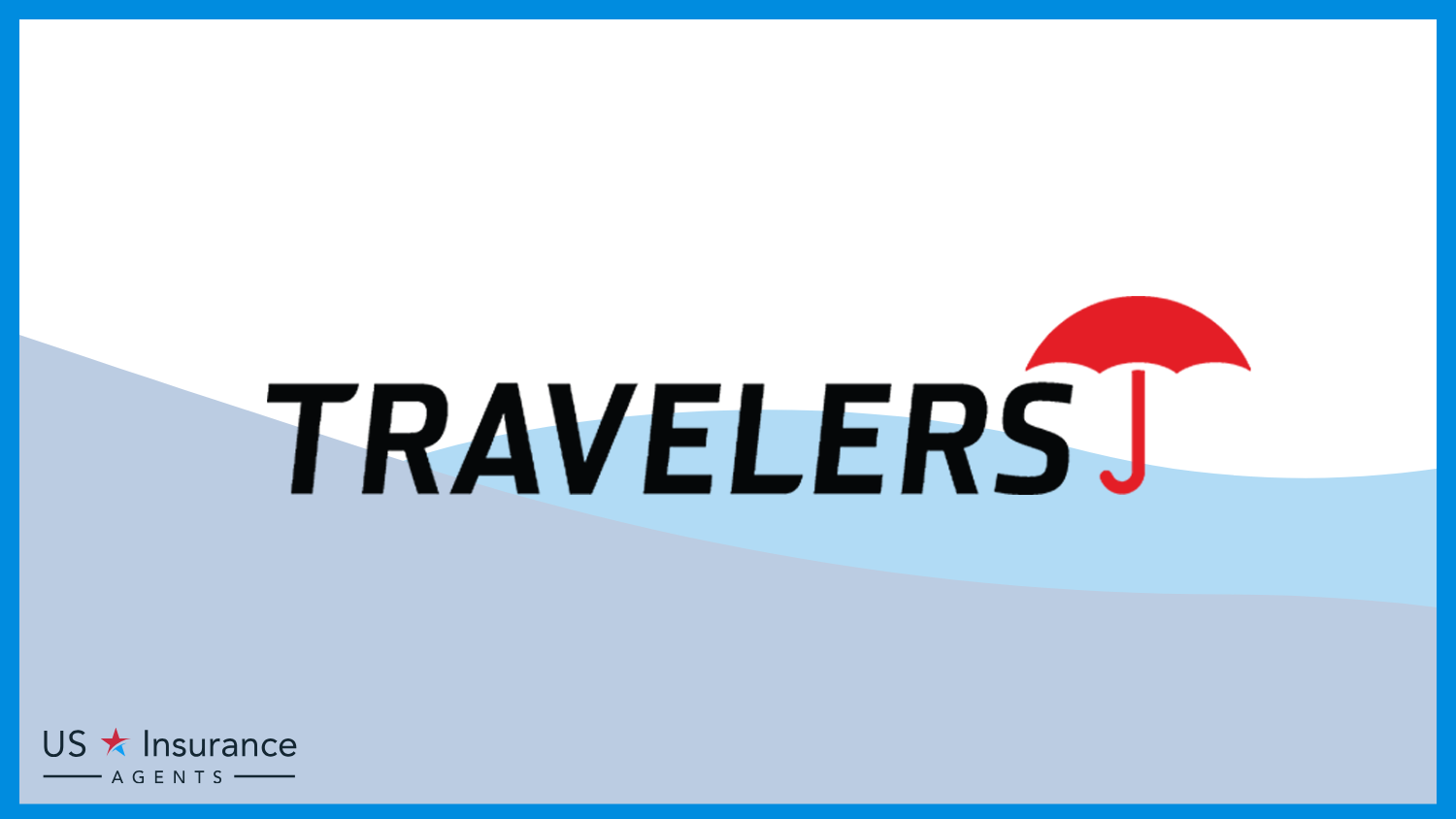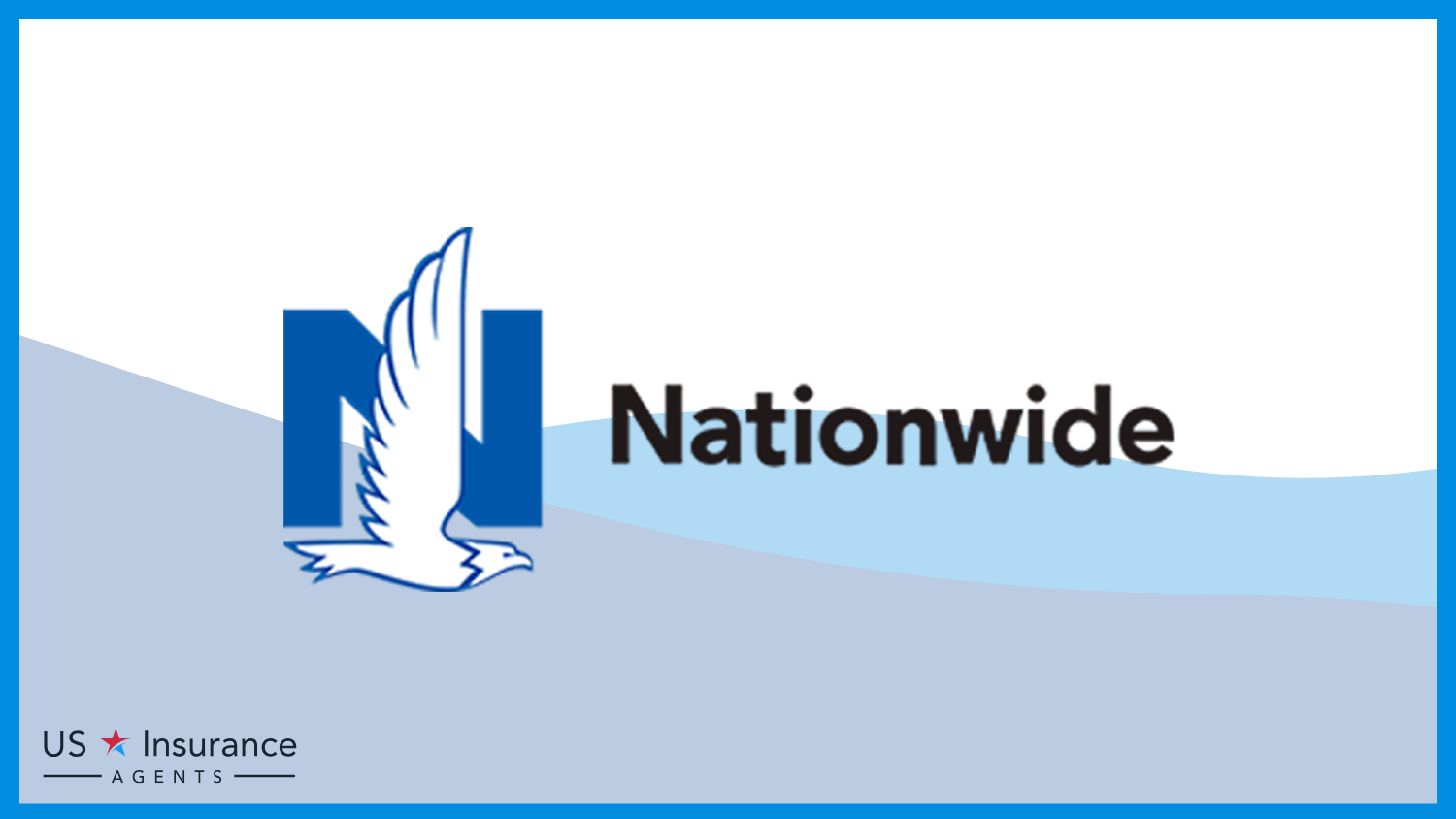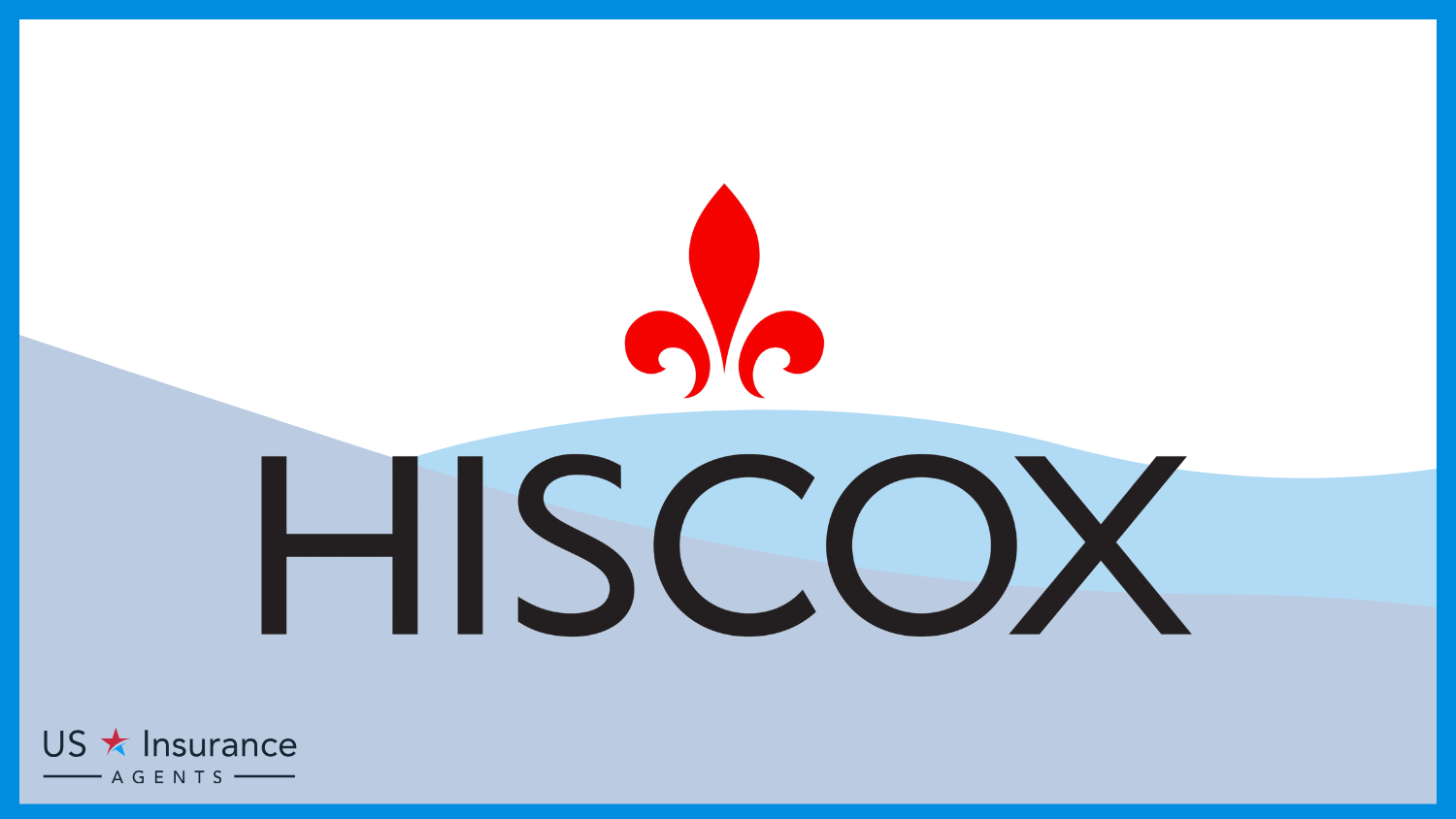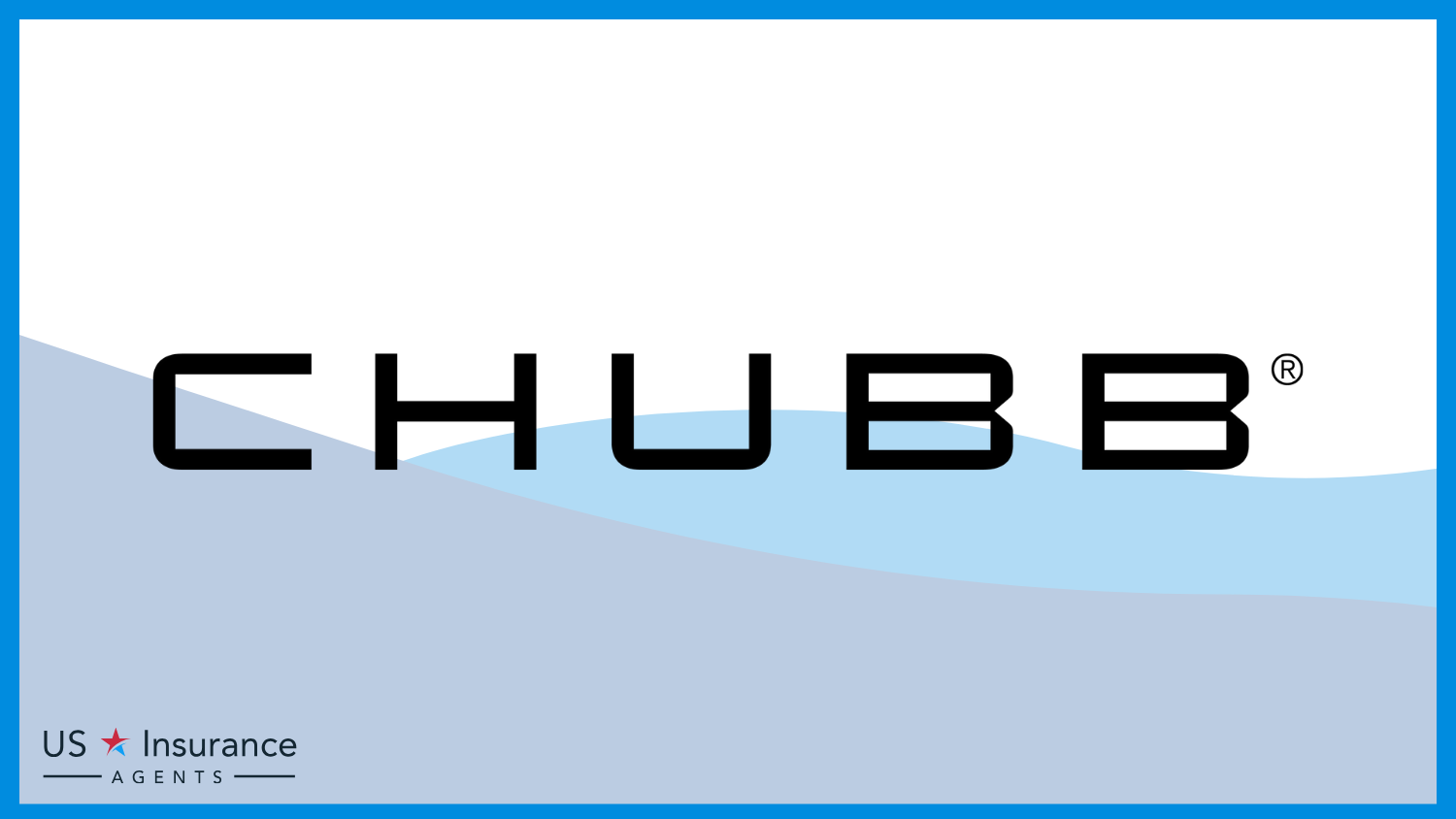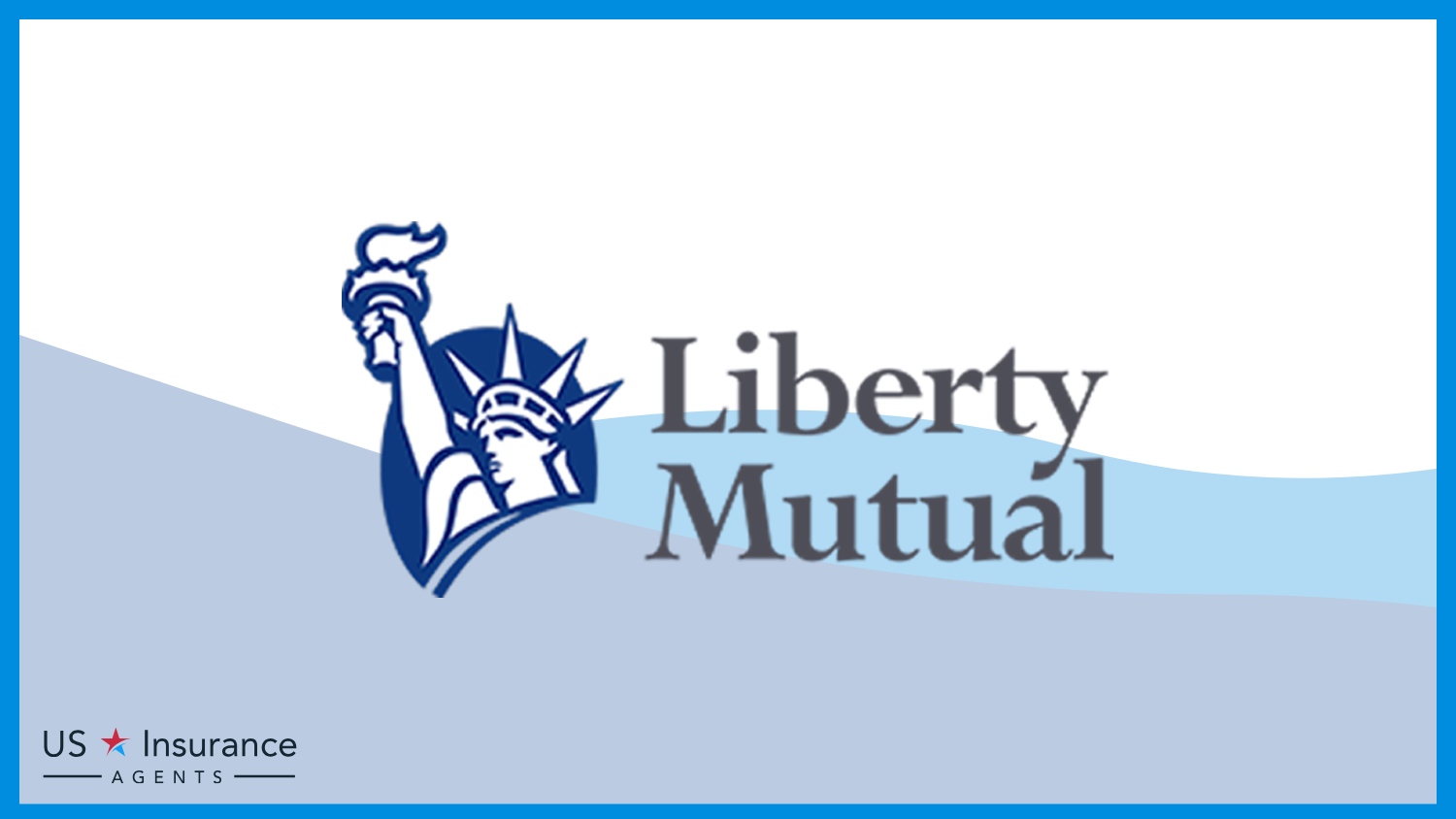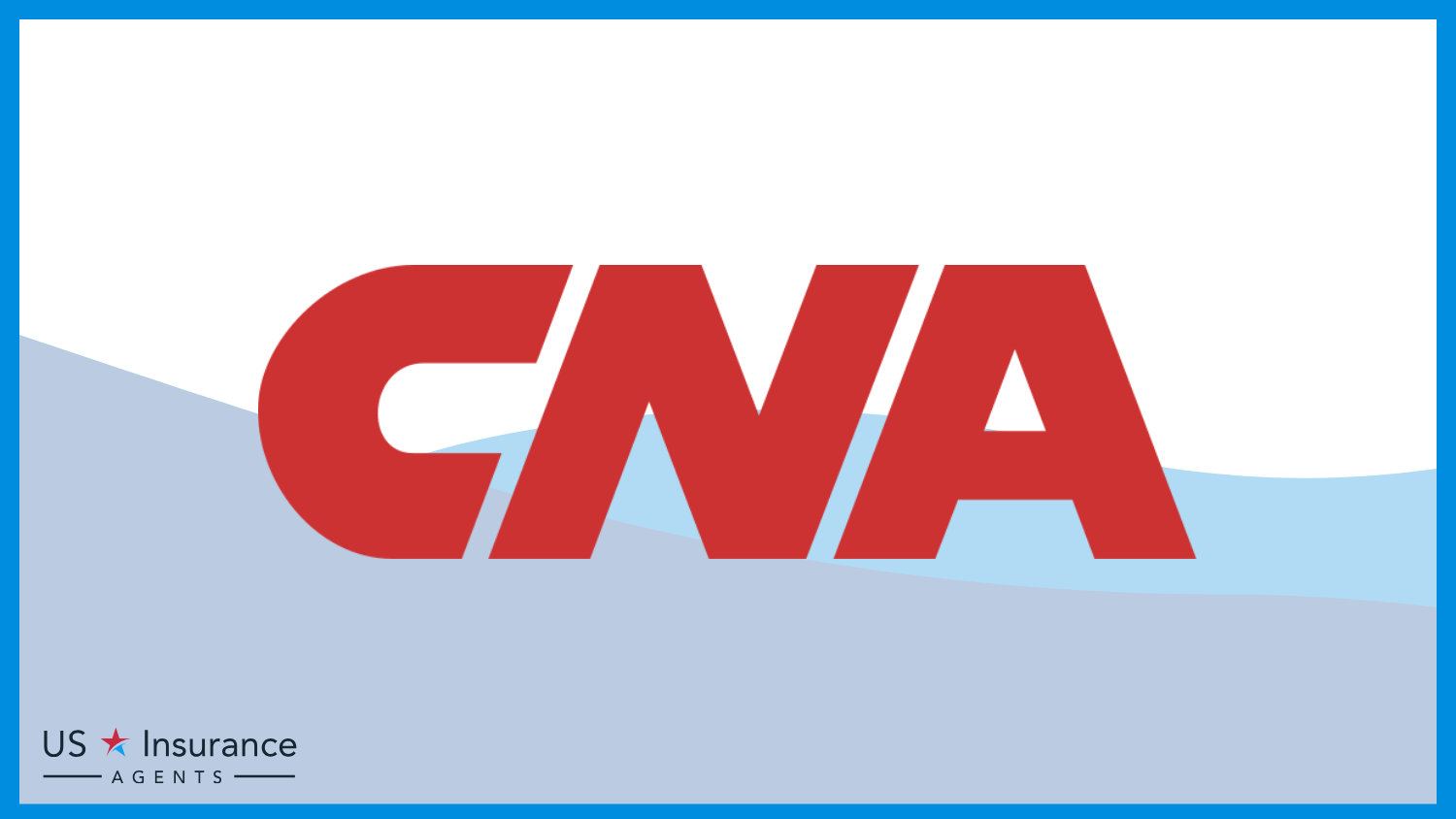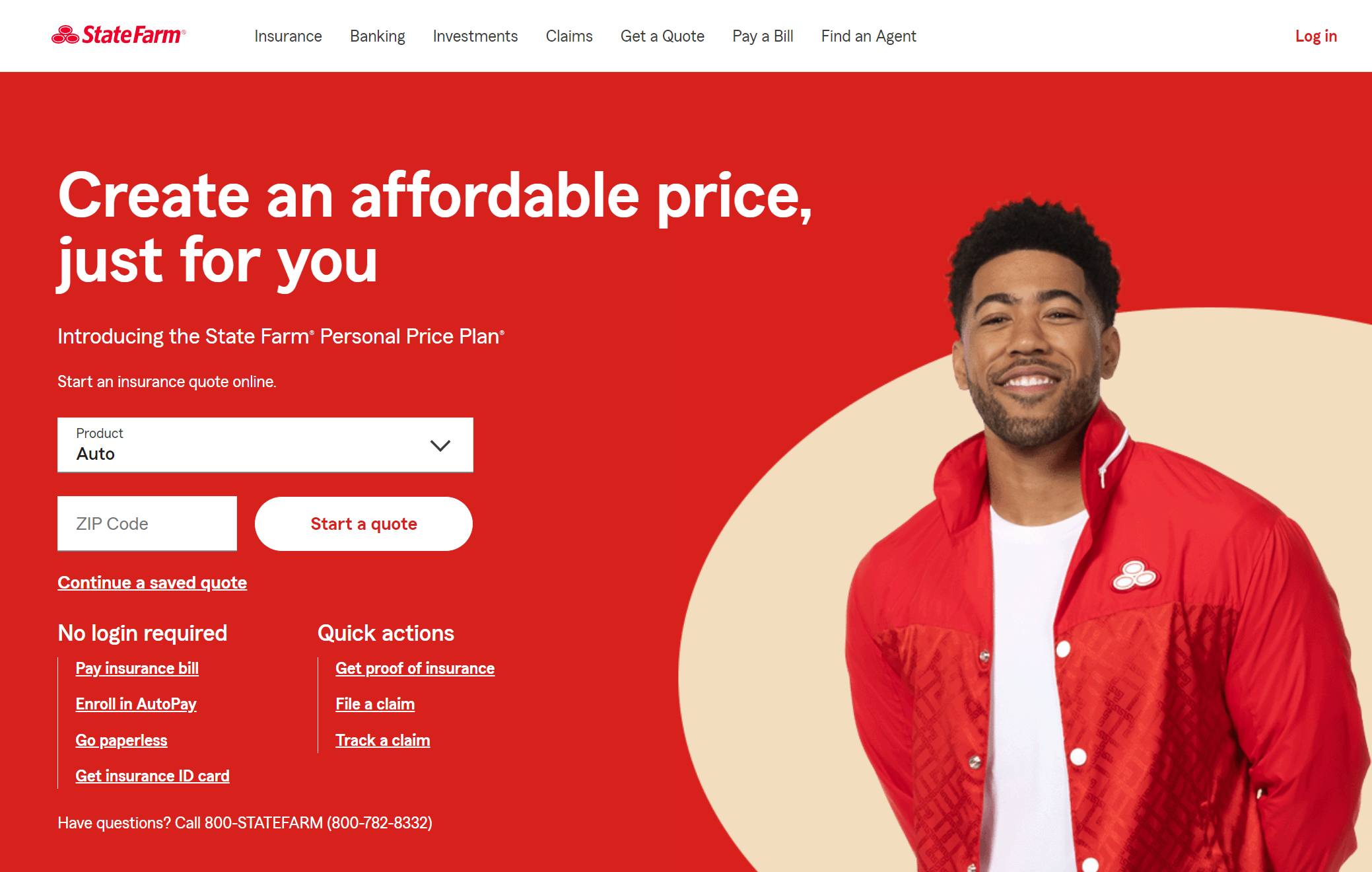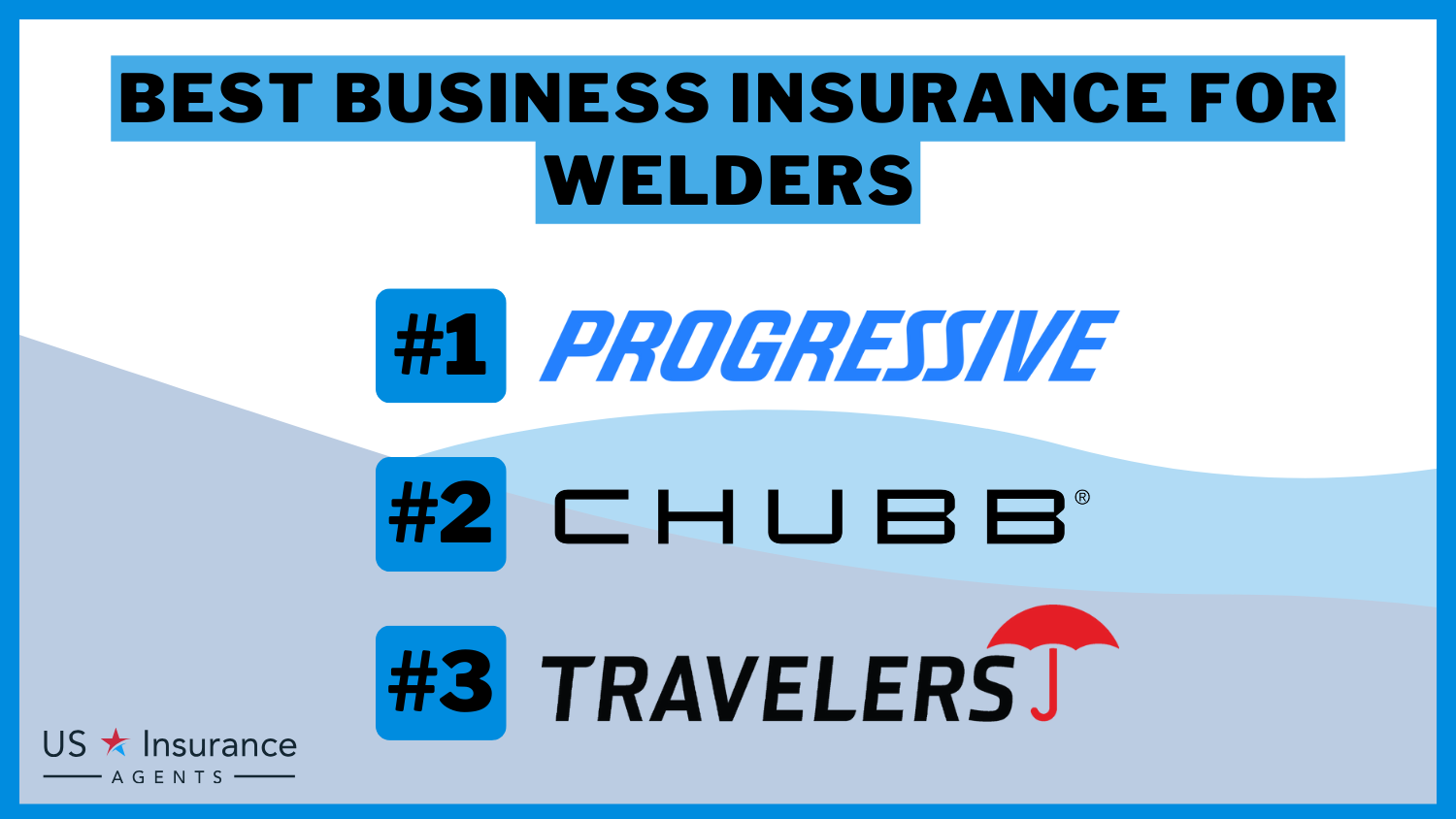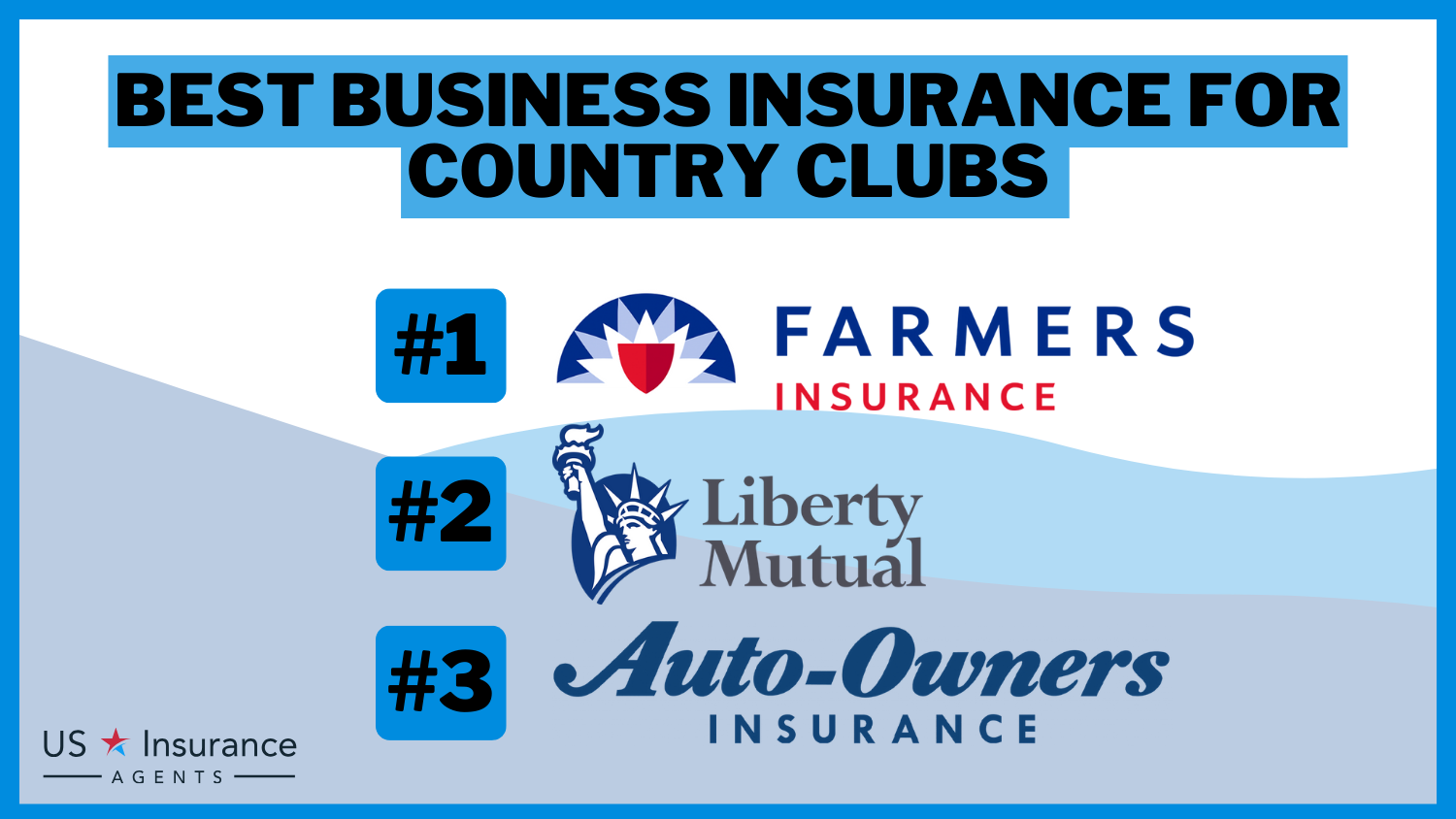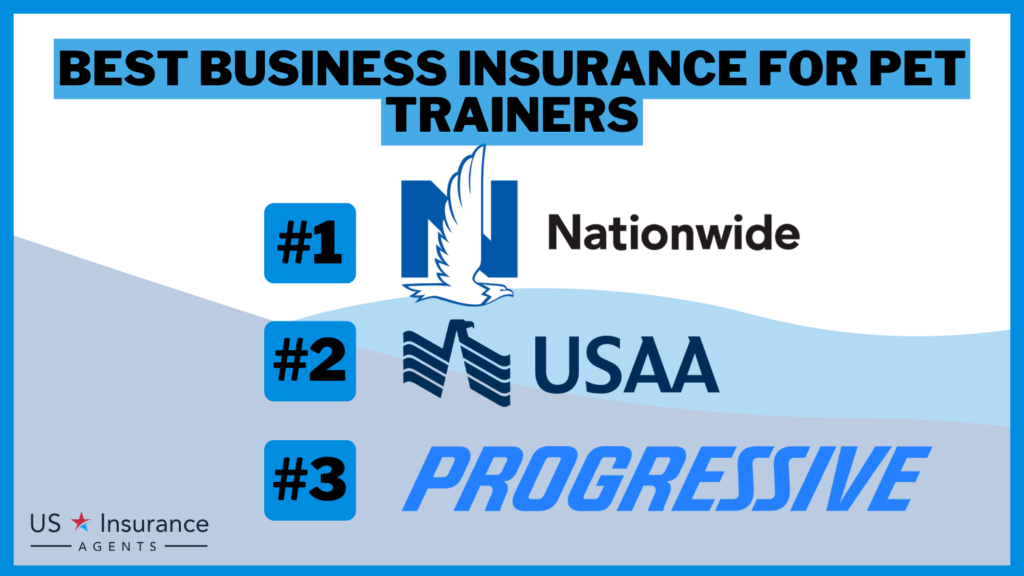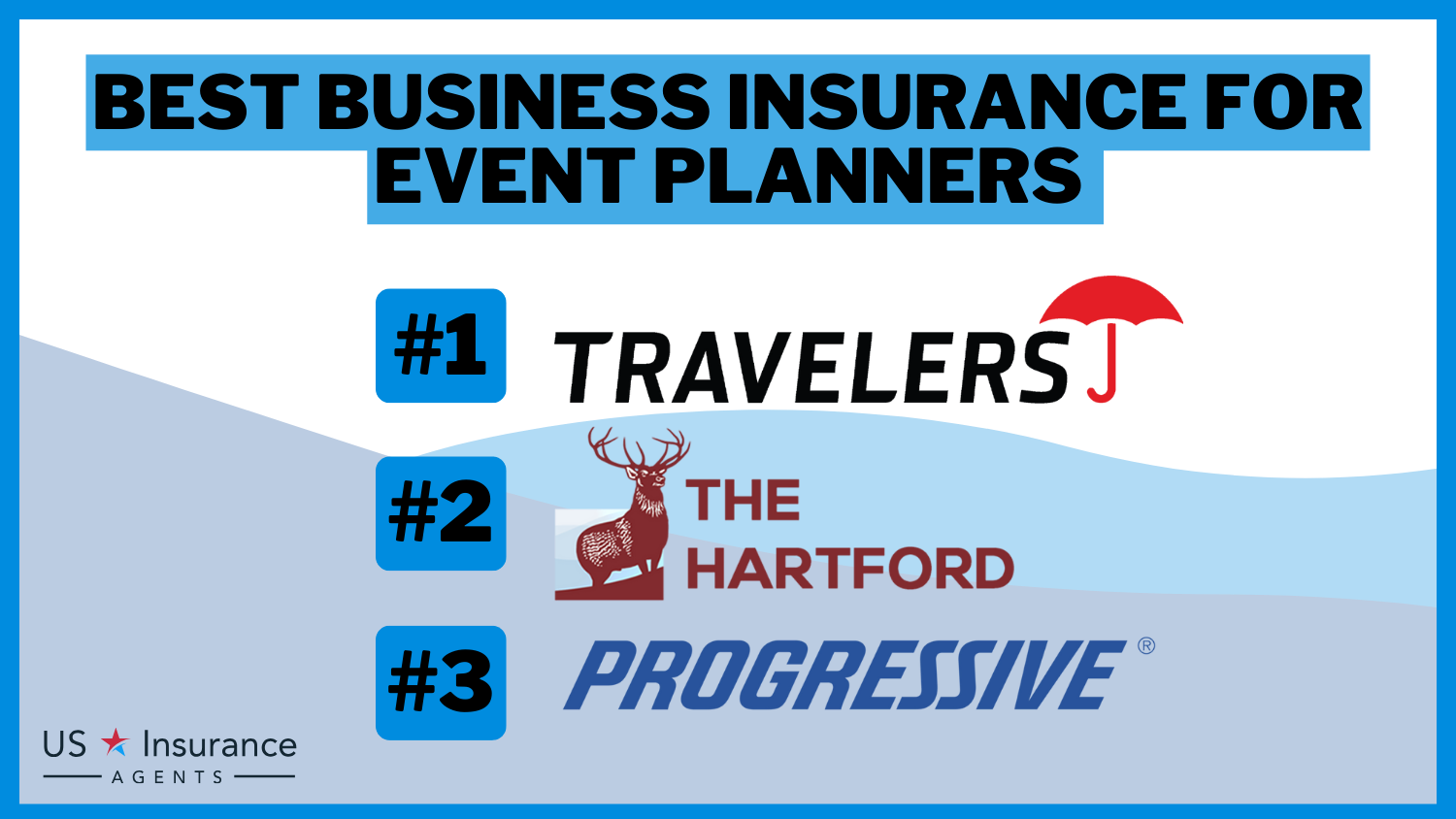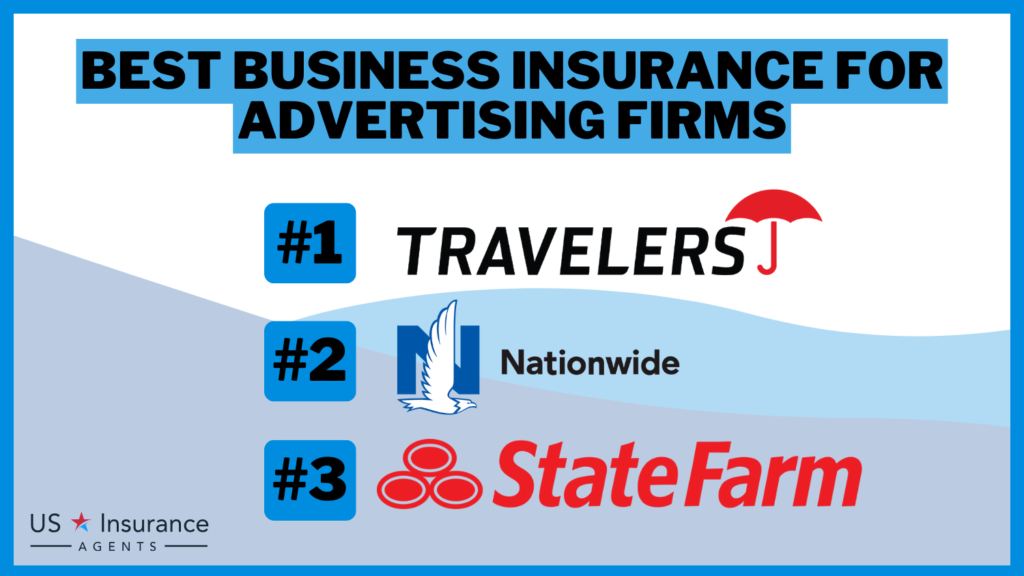10 Best Business Insurance for IT Companies in (2026)
Discover why State Farm, USAA, and Progressive lead as the top picks in our guide to the 10 best business insurance for IT companies, with plans starting at just $110 monthly. These providers offer exceptional coverage options tailored specifically to the unique needs of IT companies.
Read more Secured with SHA-256 Encryption






Table of Contents
Table of Contents


Insurance and Finance Writer
Dorothea Hudson has been professionally writing in many spheres since 2013. She has written on entertainment, insurance, finance, travel, technology, AI, renewable energy, crypto, fundraising, and real estate for many websites. Her work has been published for British retailer Marks and Spencer, Kroger Magazine, the Vision Group, and more. Her passions include writing, music, running, travel, te...
Dorothea Hudson


Licensed Insurance Agent
Kristine Lee is a licensed insurance agent and one of The Zebra’s in-house content strategists. With a background in copywriting, she covers the ins and outs of the home and car insurance industries. She has been a contributor to numerous publications focused on the nuances of insurance, including on The Points Guy.
Kristine Lee
Updated January 2025
 18,155 reviews
18,155 reviewsCompany Facts
Full Coverage for IT Companies
A.M. Best Rating
Complaint Level
Pros & Cons
 18,155 reviews
18,155 reviews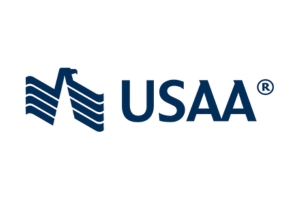 6,589 reviews
6,589 reviewsCompany Facts
Full Coverage for IT Companies
A.M. Best Rating
Complaint Level
Pros & Cons
 6,589 reviews
6,589 reviews 13,283 reviews
13,283 reviewsCompany Facts
Full Coverage for IT Companies
A.M. Best Rating
Complaint Level
Pros & Cons
 13,283 reviews
13,283 reviewsThe top picks for the 10 best business insurance for IT companies are State Farm, USAA, and Progressive, offering competitive rates and robust coverage options.
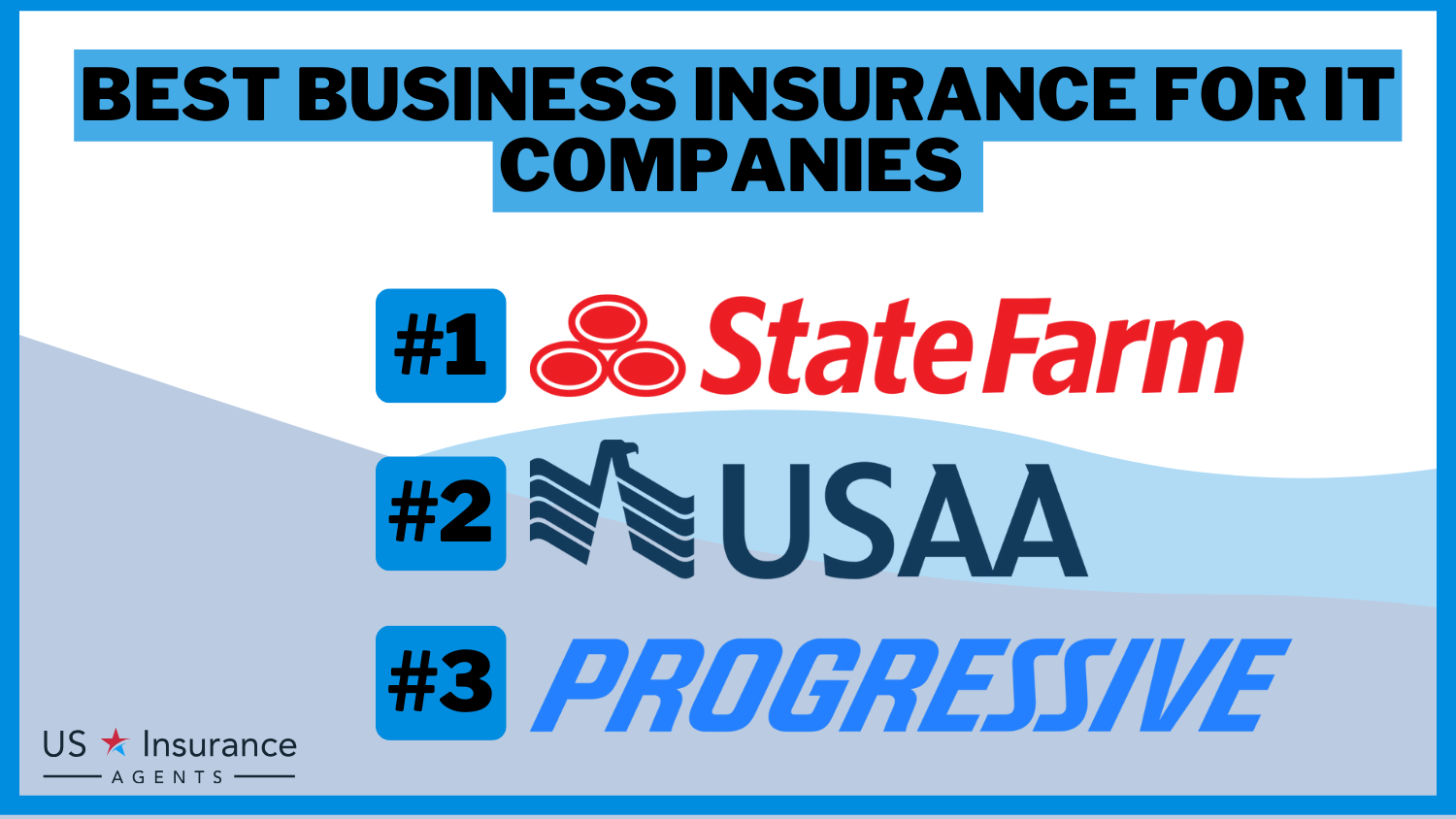
Are you an IT company looking to protect your business from potential risks and financial losses? Business insurance for IT companies is a critical consideration in today’s technology-driven world.
Our Top 10 Picks: Best Business Insurance for IT Companies
| Company | Rank | Maximum Multi-Policy Discount | Maximum Low-Mileage Discount | Best For | Jump to Pros/Cons |
|---|---|---|---|---|---|
| #1 | 17% | 30% | Many Discounts | State Farm | |
| #2 | 10% | 20% | Military Savings | USAA | |
| #3 | 10% | 31% | Online Convenience | Progressive | |
| #4 | 10% | 30% | Add-on Coverages | Allstate | |
| #5 | 13% | 30% | Accident Forgiveness | Travelers | |
 | #6 | 20% | 20% | Usage Discount | Nationwide |
 | #7 | 5% | 5% | Customizable Policies | Hiscox |
| #8 | 15% | 10% | Policy Options | Chubb | |
 | #9 | 12% | 30% | Customizable Polices | Liberty Mutual |
| #10 | 10% | 10% | Customizable Policies | CNA |
In this article, we will explore key topics related to business insurance for IT companies, including technology errors and omissions insurance, cyber liability insurance, fidelity bonds, general liability insurance, workers’ compensation insurance, and commercial auto insurance.
We will discuss the importance of implementing strong cybersecurity measures and provide valuable insights on how to safeguard your business. Don’t wait until it’s too late—take action now to secure the future of your IT company. Compare rates from the best business insurance providers and ensure your business is well-protected.
#1 – State Farm: Top Overall Pick
Pros
- Bundling Discounts: Offers significant savings for bundling multiple insurance policies. Discover insights in our State Farm insurance review & ratings.
- High Low-Mileage Discount: Provides substantial discounts for vehicles with low mileage.
- Diverse Coverage Options: Extensive range of coverage options to meet various business needs.
Cons
- Limited Multi-Policy Discounts: Multi-policy discounts are not as competitive as those offered by other insurers.
- Higher Premium Costs: Premiums can be relatively high, even with discounts applied.
Free Business Insurance Comparison
Compare Quotes From Top Companies and Save
Secured with SHA-256 Encryption
#2 – USAA: Best for Military Savings
Pros
- Military Discounts: Special savings available exclusively to military personnel and their families.
- Loyal Customer Benefits: Offers loyalty benefits and discounts to long-term members. Unlock details in our USAA insurance review & ratings.
- Robust Coverage for Military Needs: Tailored insurance solutions specifically designed for military lifestyles.
Cons
- Exclusive Membership: Only available to military members, veterans, and their families, limiting accessibility.
- Limited Physical Locations: Fewer in-person offices compared to other major insurers.
#3 – Progressive: Best for Online Convenience
Pros
- High Low-Mileage Discounts: Offers up to 31% discount for low-mileage users.
- Online Tools and Services: Pioneers in providing comprehensive online services and tools for easier management.
- Flexible Policy Options: Wide array of policy customization options available. Delve into our evaluation of Progressive insurance review & ratings.
Cons
- Customer Service Variability: Experiences with customer service can be inconsistent.
- Higher Rates for High-Risk Coverage: Premiums may be higher for policies covering high-risk activities.
#4 – Allstate: Best for Add-on Coverages
Pros
- Extensive Add-On Coverages: Wide selection of add-on coverages to enhance basic policies. Access comprehensive insights in our Allstate insurance review & ratings.
- Multi-Policy Discounts: Offers competitive discounts for customers who bundle multiple types of insurance.
- Innovative Tools and Resources: Provides a range of online tools and resources for policy management.
Cons
- Premium Pricing: Premiums can be higher compared to industry averages.
- Claim Resolution Speed: Some users report slower claim resolution times.
Free Business Insurance Comparison
Compare Quotes From Top Companies and Save
Secured with SHA-256 Encryption
#5 – Travelers: Best for Accident Forgiveness
Pros
- Accident Forgiveness: Policies include accident forgiveness, preventing premium increases after the first accident.
- Usage-Based Savings: Offers discounts for safe driving through telematics-based programs. Discover more about offerings in our Travelers insurance review & ratings.
- Wide Coverage Availability: Provides a broad range of insurance products across many states.
Cons
- Higher Base Premiums: Base premiums may be higher before applying discounts.
- Complex Policy Options: Some customers find their policy options to be overly complex.
#6 – Nationwide: Best for Usage Discounts
Pros
- Generous Usage-Based Discounts: Provides significant discounts based on usage.
- Customizable Policies: Offers highly customizable policies to fit specific needs.
- Wide Network: Extensive network of agents and support services. Check out insurance savings in our complete Nationwide insurance review & ratings.
Cons
- Variability in Agent Experience: Experience can vary significantly depending on the agent.
- Pricing Structure Complexity: Pricing can be complex and difficult to understand for new customers.
#7 – Hiscox: Best for Customizable Policies
Pros
- Specialized Small Business Coverage: Tailored insurance solutions for small businesses.
- Flexible Policy Terms: Offers flexible terms that can be adjusted as business needs change. See more details in our Insurance quotes online.
- Competitive Pricing for Niche Markets: Competitive pricing structures for specific business niches.
Cons
- Limited Coverage for Larger Businesses: Not as competitive for larger enterprises.
- Fewer Physical Locations: Less accessible for in-person service compared to larger insurers.
Free Business Insurance Comparison
Compare Quotes From Top Companies and Save
Secured with SHA-256 Encryption
#8 – Chubb: Best for Policy Options
Pros
- Broad Policy Selection: Offers a wide variety of policy options to suit different business needs.
- Global Coverage: Provides extensive international coverage options for businesses operating overseas.
- High Customer Satisfaction: Generally high levels of customer satisfaction and support. More information is available about this provider in our Chubb insurance review & ratings.
Cons
- Higher Cost: Generally higher cost of insurance compared to other providers.
- Complex Claims Process: Some users report a complex claims process.
#9 – Liberty Mutual: Best for Customizable Coverages
Pros
- Customizable Policy Options: Offers extensive customization options for business insurance policies.
- Strong Financial Stability: Well-regarded for its strong financial stability and reliability. See more details in our Liberty Mutual insurance review & ratings.
- Risk Management Services: Provides comprehensive risk management services to help businesses mitigate risks.
Cons
- Inconsistent Customer Service: Customer service quality can vary.
- Premium Costs: Can be on the higher side, especially for customized policies.
#10 – CNA: Best for Flexible Policies
Pros
- Highly Customizable Policies: Offers a range of policies that can be tailored to specific business needs.
- Strong Industry Reputation: Known for a strong reputation in the business insurance industry.
- Dedicated Support: Provides dedicated support for business insurance customers. Learn more in our CNA insurance review & ratings.
Cons
- Limited International Options: Fewer options for businesses needing international coverage.
- Complex Application Process: Application process can be more complex than with some competitors.
Free Business Insurance Comparison
Compare Quotes From Top Companies and Save
Secured with SHA-256 Encryption
Comparative Monthly Insurance Rates for IT Companies
Understanding the cost implications for different levels of business insurance coverage is crucial for IT companies looking to optimize their insurance expenses. The table below provides a clear comparison of monthly rates for both minimum and full coverage options across various insurers.
Business Insurance Monthly Rates for IT Companies by Coverage Level
| Insurance Company | Minimum Coverage | Full Coverage |
|---|---|---|
| Allstate | $120 | $350 |
| Chubb | $180 | $400 |
| CNA | $150 | $380 |
| Hiscox | $140 | $370 |
| Liberty Mutual | $130 | $360 |
| Nationwide | $125 | $350 |
| Progressive | $110 | $320 |
| State Farm | $135 | $370 |
| Travelers | $145 | $380 |
| USAA | $110 | $340 |
Insurance companies offer diverse monthly rates tailored to the coverage needs of IT companies. For minimum coverage, rates start as low as $110 with companies like Progressive and USAA, while the highest is offered by Chubb at $180.
On the other hand, full coverage rates range from $320 with Progressive, making it the most economical choice for comprehensive protection, to $400 offered by Chubb, reflecting its premium offering. This variance in pricing helps IT companies find a balance between cost and coverage depth, allowing for more informed financial planning and risk management.
Essential Insurance Coverage for IT Companies: Protecting Your Business
When it comes to insurance coverage for technology businesses, there are several policies that are highly recommended to ensure comprehensive protection. Here are the key insurance policies that you should consider:
- Technology Errors and Omissions Insurance: Provides coverage for legal costs and damages resulting from errors, omissions, or negligence in your professional services.
- Cyber Liability Insurance: Protects your business from the financial impact of cyber incidents, covering expenses such as data breach notification, forensic investigations, legal fees, and public relations efforts.
- Fidelity Bonds: Safeguards your clients in case of employee theft or dishonest acts, including both traditional theft and theft through electronic means.
- General Liability Insurance: Covers third-party claims for bodily injury, property damage, advertising injury, and personal injury.
- Workers’ Compensation Insurance: Required by law in most states, it provides coverage for work-related injuries or illnesses suffered by your employees.
- Commercial Auto Insurance: Commercial auto insurance is essential if your business owns vehicles for business purposes, offering coverage for accidents, theft, and other risks.
- Business Owner’s Policy (BOP): Combines multiple essential coverages into a single package tailored for small and medium-sized businesses.
Insurance needs of technology businesses can vary based on factors such as the size of the company, the nature of operations, the types of technology products or services offered, and the specific risks involved.
Laura Walker Former Licensed Agent
Working with licensed insurance professionals who specialize in technology business insurance can help you assess your specific needs and customize a comprehensive insurance portfolio to protect your business effectively.
Safeguarding Your IT Business: Fortifying Against Cyberattacks
In today’s interconnected world, cybersecurity is a critical concern for IT businesses. Implementing robust security measures can help protect your business from cyberattacks and minimize the risk of data breaches. Here are the nine key steps you can take:
- Use strong passwords. Encourage employees to create strong, unique passwords and regularly update them. Consider implementing a password manager for added convenience and security.
- Educate your staff. Train your employees on cybersecurity best practices, such as identifying phishing emails, avoiding suspicious downloads, and practicing safe browsing habits.
- Keep software updated. Regularly update your software and applications with the latest security patches to fix vulnerabilities that hackers could exploit.
- Install firewalls and antivirus software. Utilize firewalls to monitor network traffic and install reputable antivirus software to detect and remove malware threats.
- Back up your data. Implement a regular data backup system to ensure important business data is securely stored in case of a breach or system failure.
- Secure your Wi-Fi network. Use strong encryption, change default router passwords, and limit access to your Wi-Fi network. Consider separate guest networks for visitors.
- Manage user privileges. Assign user privileges based on job roles and responsibilities to limit access to sensitive data.
- Have an incident response plan. Develop a clear plan outlining the steps to take in the event of a cyber incident, including identifying, containing, and mitigating the impact of an attack.
- Stay informed. Keep up with the latest cybersecurity news and trends to stay ahead of evolving threats.
Cybersecurity is an ongoing effort that requires constant vigilance and adaptation to stay ahead of cyber threats. By implementing these measures and fostering a culture of security within your organization, you can significantly enhance your business’s resilience against cyberattacks. Learn more by reading our guide How to get free insurance quotes online.
Free Business Insurance Comparison
Compare Quotes From Top Companies and Save
Secured with SHA-256 Encryption
Exploring Excellence: Case Studies in Tailored Business Insurance Solutions for IT Companies
In an ever-evolving digital landscape, IT companies face unique challenges that require robust risk management solutions. This paper presents three case studies exploring tailored business insurance solutions that safeguard IT firms against operational risks and liabilities.
- Case Study #1 – Technology Errors and Omissions Insurance: A software development company was hired to create a custom web application for a client. Unfortunately, due to a coding error, the application experienced a critical malfunction, causing financial losses for the client. The client filed a lawsuit against the IT company, seeking compensation for the damages incurred.
- Case Study #2– Cyber Liability Insurance: An IT consulting firm, specializing in network security, experienced a data breach when a hacker gained unauthorized access to their system. As a result, sensitive client information, including personal and financial data, was compromised.
- Case Study #3– Fidelity Bonds: A managed IT service provider had an employee who engaged in fraudulent activities by stealing sensitive client information and using it for personal gain. The affected clients suffered financial losses and demanded compensation from the IT company. Luckily, the IT company had fidelity bonds, also known as employee dishonesty bonds.
These case studies highlight the importance of tailored insurance policies for IT companies in mitigating risks associated with their specific industry demands. By understanding and implementing the right insurance solutions, IT firms can protect themselves from potential financial and reputational damages effectively.
Read more: Best Business Insurance for Web Development Agencies
Summing Up: Business Insurance for IT Companies
Safeguarding your IT business is crucial for long-term success. By understanding the risks you face and having the right insurance coverage, you can protect against liabilities and financial losses. Key policies for IT companies include technology errors and omissions insurance, cyber liability insurance, fidelity bonds, general liability insurance, workers’ compensation insurance, and commercial auto insurance.
Implementing strong cybersecurity measures, such as password security and regular software updates, is also essential. With the right combination of insurance coverage and proactive security practices, you can ensure the resilience of your IT business and minimize potential risks. Stay informed, adapt to evolving threats, and navigate the IT landscape confidently.
Our free quote tool below makes it easy to compare affordable coverage options for your business — simply enter your ZIP code to find the best commercial insurance company for you.

Frequently Asked Questions
What types of coverage are essential for IT companies?
Essential coverage for IT companies includes technology errors and omissions insurance, cyber liability insurance, fidelity bonds, general liability insurance, workers’ compensation insurance, and commercial auto insurance. Each addresses specific risks inherent to the technology-driven industry.
For additional details, explore our comprehensive resource titled “Commercial General Liability (CGL) Insurance: A Complete Guide.”
How do I choose the right business insurance provider for my IT company?
Consider factors such as coverage options, rates, and customer reviews. Our guide highlights top providers like State Farm, USAA, and Progressive, offering insights into their strengths, discounts, and customer satisfaction levels for informed decision-making.
Are there specific discounts available for IT companies?
Yes, many providers offer industry-specific discounts. State Farm, for instance, provides multiple discounts, including up to 17% for various policies. USAA offers up to 10% for military personnel, while Progressive provides up to 31% low-mileage discounts.
What role does a company’s credit score play in insurance rates?
Credit score is a crucial factor influencing insurance rates. Providers assess creditworthiness to determine risk. Maintaining a good credit score can contribute to lower premiums and better overall terms for your IT company’s insurance.
To find out more, explore our guide titled “How does the insurance company determine my premium?“
How can I ensure my IT business is adequately protected against cyber threats?
Adequate protection against cyber threats involves securing cyber liability insurance. This coverage helps mitigate financial losses resulting from data breaches, cyberattacks, and other digital risks, ensuring your IT business remains resilient in the face of evolving threats.
How can insurance help small businesses?
By getting insurance for your small business, you’re purchasing protection. This protection will be there for you if something bad happens to the business. For some people, it can be hard to see the value of buying something like insurance because it’s intangible and is something that you don’t always use.
What insurance types are most profitable?
Life insurance stands out as one of the most profitable types of insurance due to its steady demand, attractive commissions, high premiums, and long-term policy tenure.
What can insurance protect you from?
Insurance in general is meant to protect you financially if something bad happens that is expensive to fix or recover from. You might get insurance for your car, life, your apartment, or even your phone.
Which insurance is the most popular?
State Farm is the most popular insurance company nationwide, and it also is the most popular company in 19 states. Progressive is the largest insurance company in 21 states, including many New England states, some states in the Midwest, Florida and Texas.
Protect your business today by entering your ZIP code blow into our comparison tool for free commercial insurance quotes.
Which insurance is the most important?
Health insurance is a critical piece of every financial plan. An unforeseen diagnosis or a major accident can leave you with a six or seven-figure medical bill. That kind of financial hit could wipe your retirement savings and more.
What is insurance as used in business?
What is the relationship between insurance and business?
What is insurance premium?
What is the fastest growing insurance type?
What is the easiest and most profitable insurance to sell?
What is the most trusted insurance brand?
What is the limit of liability insurance?
What is the most popular type of life insurance?
What is the most expensive type of insurance?
Who is the top three insurance company?
Get a FREE Quote in Minutes
Insurance rates change constantly — we help you stay ahead by making it easy to compare top options and save.

